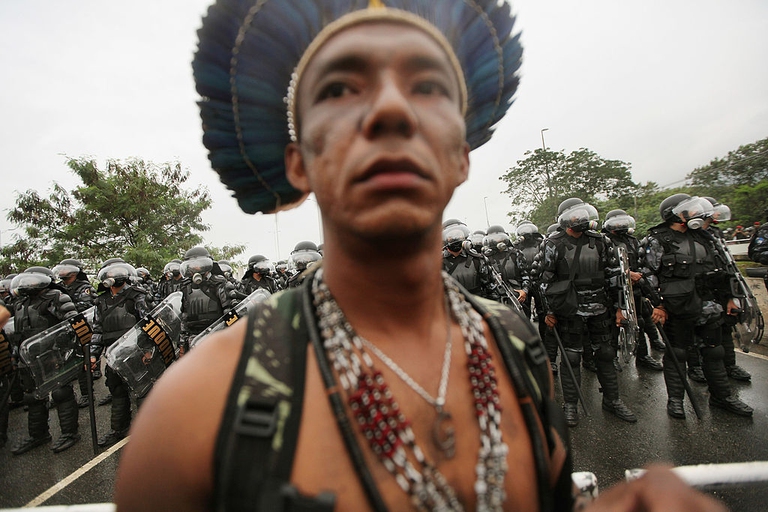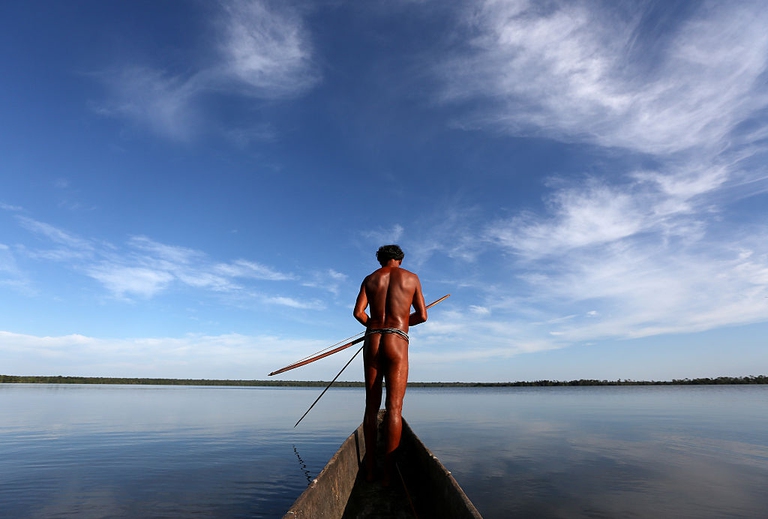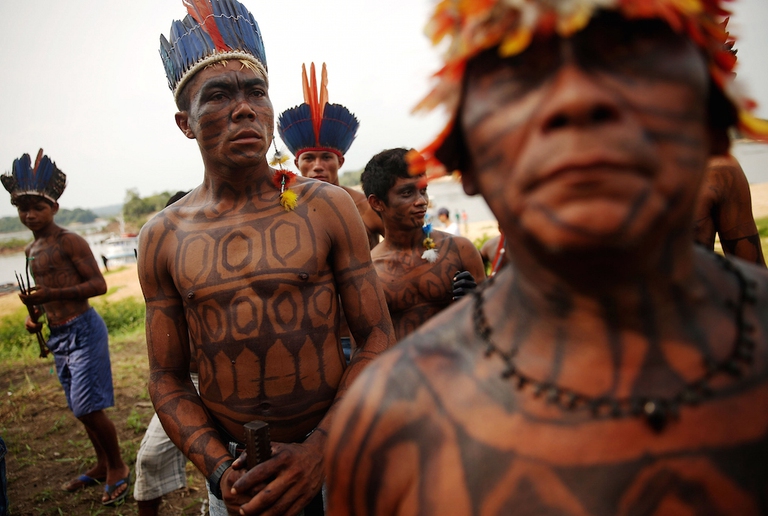
A special report from the Yuqui territory delves deep into the dreams, challenges, joys and sadness of one of Bolivia’s most vulnerable indigenous groups.
Around ten members of an uncontacted indigenous tribe, one that has had no peaceful contact with mainstream society, have been killed by illegal gold miners in the Brazilian Amazon. The alleged attack took place last month along the Jandiatuba River, close to the border with Peru and Colombia. The crime came to light after the perpetrators were overheard in
Around ten members of an uncontacted indigenous tribe, one that has had no peaceful contact with mainstream society, have been killed by illegal gold miners in the Brazilian Amazon. The alleged attack took place last month along the Jandiatuba River, close to the border with Peru and Colombia. The crime came to light after the perpetrators were overheard in a bar bragging about “cutting up the bodies and throwing them in the river,” according to Leila Silvia Burger Sotto-Maior from FUNAI, the national agency for indigenous affairs.
“There’s a lot of evidence, but it needs to be proven,” Burger Sotto-Maior added. The prosecution has opened an investigation and is conducting initial interviews, Pablo Luz de Beltrand, the prosecutor in charge of the case has confirmed. “We’re following up, but the territories are big and access is limited,” he said.
Pursuing the case has been difficult due to budget cuts for the protection of indigenous people. “To know we don’t have the capacity to stop something like this … it’s very difficult,” Sotto-Maior commented. Earlier this year FUNAI, which monitors areas inhabited by indigenous people, was forced to close down three bases in the region as its budget has been cut by half.
Ever since rising to power after the impeachment of former president Dilma Rousseff in 2016, current leader Michel Temer’s popularity has oscillated around 20 percentage point. Currently he is being investigated in a large-scale corruption scandal that implicates dozens of Brazilian politicians, including two former presidents, and his approval ratings reached the new low of 5 per cent in June.
In an attempt to gain the support of powerful lobbies such as the mining and agriculture ones, Temer’s government has taken a firm stance against the wellbeing of indigenous people and the benefit of usurping their territory for commercial uses. Only a few weeks ago, the Supreme Tribunal intervened by suspending a government decree that would have opened a large Amazon reserve to commercial mining.
Leggi anche: The Brazilian Amazon has been saved from commercial mining
“If the investigation confirms the reports, it will be yet another genocidal massacre resulting directly from the Brazilian government’s failure to protect isolated tribes,” commented Sarah Shenker, a senior campaigner for Survival International, a global advocacy group for tribal peoples’ rights.
Although it isn’t possible to know exactly how many indigenous peoples reject contact with those from outside of their communities, according to estimates, there are about 200 groups and 10,000 people living in voluntary isolation around the world. In the Americas, uncontacted tribes and people in initial contact are protected under a number of national, regional and global agreements but nevertheless they remain exposed to incursions and loss of territory.
Siamo anche su WhatsApp. Segui il canale ufficiale LifeGate per restare aggiornata, aggiornato sulle ultime notizie e sulle nostre attività.
![]()
Quest'opera è distribuita con Licenza Creative Commons Attribuzione - Non commerciale - Non opere derivate 4.0 Internazionale.
A special report from the Yuqui territory delves deep into the dreams, challenges, joys and sadness of one of Bolivia’s most vulnerable indigenous groups.
The Yuqui people of the Bolivian Amazon fight not only to survive in the face of settlers, logging and Covid-19, but to preserve their culture and identity.
Jair Bolsonaro is accused of crimes against humanity for persecuting indigenous Brazilians and destroying the Amazon. We speak to William Bourdon and Charly Salkazanov, the lawyers bringing the case before the ICC.
Activists hail the decision not to hold the 2023 World Anthropology Congress at a controversial Indian school for tribal children as originally planned.
Autumn Peltier is a water defender who began her fight for indigenous Canadians’ right to clean drinking water when she was only eight years old.
The pandemic threatens some of the world’s most endangered indigenous peoples, such as the Great Andamanese of the Andaman and Nicobar Islands in India.
The Upopoy National Ainu Museum has finally opened. With it the indigenous people of Hokkaido are gaining recognition but not access to fundamental rights.
A video shows the violent arrest of indigenous Chief Allan Adam, who was beaten by two Royal Canadian Mounted Police (RCMP) officers.









